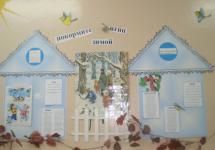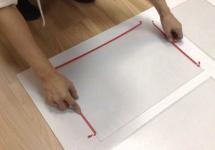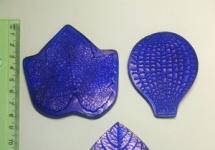Передать речь другого человека возможно двумя различными способами: процитировать или передать своими словами. Цитирование слов другого человека называется прямой речью, передача своими словами - речью косвенной. При использовании косвенной речи в английском языке существует несколько правил, речь о которых пойдёт ниже.
Косвенная речь в английском языке согласует время используемых глаголов во второстепенном предложении с глаголами, используемыми в главной части предложения. Если мы употребляем в главном предложении глаголы, поставленные в Present или Future, форма глагола в зависимом остаётся неизменной. Если же мы имеем дело в приоритетном предложении с глаголом, употреблённым во времени Past, то в придаточном предложении все глаголы употребляются также во времени Past.
She says that the cleaning is finished. / Она говорит, что уборка завершена.
He will want to watch what you have written. / Он захочет видеть, что вы написали.
She wanted to know what you had bought. / Она хотела знать, что вы приобрели.
Если необходимо употребить модальные глаголы в косвенной речи, стоит придерживаться правила о том, что модальный глагол, расположенный в придаточном предложении должен быть употреблён в том же времени, что глагол-сказуемое в главном.
Katy claimed that she could read minds. / Кети утверждала, что может читать мысли.
Упражнения на косвенную речь
Для того, чтобы полностью усвоить тему, необходимо выполнить упражнения на косвенную речь в английском языке.
Выберите правильный вариант:
Выберите местоимение или наречие, которое употребляется в косвенной речи:
Выберите правильный вариант ответа. При переходе из прямой речи в косвенную:
Упражнения на косвенную речь в сервисе Lim English помогут полноценно разобраться как и где правильно употреблять косвенную речь, а где цитаты, изменяются ли формы глаголов при употреблении косвенной речи.
Сегодня выполняем упражнения на прямую и косвенную речь в английском языке. Вначале предлагаю Вам повторить правила . Надеюсь, вы готовы и мы можем приступить к выполнению упражнений.
В статье есть упражнения на употребление
Косвенная речь упражнения. Утвердительные предложения.
В данной главе выполним indirect speech exercises на перевод утвердительных предложений из прямой речи в косвенную.
Упражнение 1.
Example “I work hard,” Jillian said.
Jillian said that he worked hard.
- “I am planning to go to Kenya,” Sally said.
- “I take my little sister to school every day,” little Anthony said.
- “You may take my textbook,” Nonna said.
- “They are playing in the gym now,” Nick said.
- “I don’t like chocolate,” Mary said.
- “My sister is ready to go” Helen said.
- “My mother usually goes shopping on Saturday,” the girl said.
- “The birds build their nests among the trees,” the teacher said.
- “I am not married,” Jimmy said.
- “I can"t read these books. I don’t like them,” Petra said.
Упражнение 2. Change the direct speech into reported speech. Переведите в косвенную речь.
Example 1: I have already finished the test. -> He said he had already finished the test.
- We have gone on holiday.
- Nelly can’t write; she has cut her finger.
- The Ivanovs have travelled to many places.
- Sam has already learnt the poem.
- My sister has broken my pencil.
- My dad has never travelled by plane.
- Andrew has lost his keys.
- Jill has never slept in a tent.
Example 2: The party finished late. -> He said (that) the party had finished late.
- They lived in a camp when they were on holiday.
- My brother got up early this morning.
- Li was a famous sportsman.
- The couple agreed to meet at six.
- Yesterday, I saw Mary in the street.
- Sammy arrived by train.
- Nicky went home early yesterday.
- The kids played tennis in the yard.
Example 3: I’ll meet them at school. -> He said he would meet them at school.
- The match will take place next week.
- This work will take little time.
- My parents will come at 3.
- Mike will do this exercise later.
- My friend won’t be able to come.
- They’ll build a new hotel here.
- It will rain tomorrow.
- Sandy won’t be able to come.
- We’ll have examinations next year.
Упражнение 3. Imagine that you met your friend and he told you something. Writе what he told you.
Example: I haven’t seen you for a long time.-> He told me that he hadn’t seen me for a long time.
- I was away from school because I was ill.
- I phoned you many times but you were out.
- Some of the schoolmates came to see me.
- I had a cold and stayed in bed.
- I watched TV.
- I’ll come to school next week.
- I’ll be better I hope.
- The doctor has given me many pills.
Упражнение 4. Перепишите предложения из косвенной речи в прямую.
Example: He said the meeting had finished. -> The meeting has finished.
- He said that his bus hadn’t come in time the day beforе.
- The boys said they would go to the football match.
- He said their team hadn’t won the last game.
- Molly said that she had gone to the library after school.
- Liz said that she would go home early.
- Wе said that we hadn’t made any plans yet.
Косвенная речь упражнения. Вопросительные предложения.
Переходим к упражнениям на отработку перевода вопросительных предложений из прямой речи в косвенную.
Упражнение 5. Imagine that you saw your doctor yesterday because you had a bad headache. Tell your partner what questions the doctor asked.
Example: Do you sleep well?
- The doctor asked me if I slept well.
- Is anything wrong with you?
- Do you sometimes have headaches?
- Are you taking any medicine now?
- Do you spend much time out- of-doors?
- Do you do sports?
- Have you a good appetite?
- Do you usually go to bed late?
- Will you follow my advice?
Упражнение 6. Imagine that a reporter from the local newspaper came to your school yesterday. Report his questions.
Еxample: How long have you studied at this school?
He asked me how long I had studied at that school.
- What do you like about your school?
- What school activity did you have last?
- What good habits have you formed at school?
- What is your favorite subject?
- What is more important for you at school?
- How often do you go on school trips?
- What is your school record?
Упражнение 7. Report the questions.
Example: Are you glad to be back?
He asked me if I was glad to be back.
- How are you?
- How long have you been away?
- Are you going away again?
- What will you do in future?
- Why did you come back?
- What are you doing now?
- Have you made new friends?
- Where are you living now?
Упражнение 8 . Report the questions.
Example: Are you English?
She asked him if he was English.
- Can Molly speak English?
- What impressed you most in England?
- When did Rick come home yesterday?
- Does Megan like travelling?
- Will you come to my place on Friday?
- Is it your second visit to England?
- Why have you come to scotland?
- Will Molly stay at the hotel long?
Упражнение 9. Write reported questions.
Example: “Who is he?” she asked.
She asked who he was.
- “Why is she working so late?” he asked.
- “Is she British?” he asked.
- “What’s her name?” he asked.
- “What did she buy?” he asked.
- “Will you have something to eat?” she asked.
- “Have they got any money?” she asked.
- “How did you do that?” she asked.
Косвенная речь упражнения. Побудительные предложения.
Упражнение 10 . Imagine that your mother gave you some instructions. Report them to your partner. Use the sentences below.
Example: Feed the cat.
She told me to feed the cat.
- Come home straight after school.
- Warm up your dinner.
- Wash up the dishes after the dinner.
- Buy bread, milk and sugar.
- Start doing your homework before I come.
- Take the dog for a walk.
- Clean your room.
- Wait for me at home.
Упражнение 11 . Tell your partner what instructions you have got from different teachers today. Use the sentences below.
Don’t be late for the lesson.
She told us not to be late for the lesson
- Don’t stay outside after the bell comes.
- Don’t run along the corridor.
- Don’t make noise.
- Don’t look into your neighbor’s exercise-book.
- Don’t lie on your desk.
- Don’t ask me silly questions.
- Don’t waste time at the lesson.
- Listen to me attentively.
- Write down the rule into your exercise-books.
- Get down to work.
Надеюсь, вы справились с этими упражнениями по теме Косвенная речь .
Indirect Speech (10 -11)
Transform direct speech into indirect speech.
The teacher asks the children: “Give me your test books please!”
Mother insists: “ You should visit the doctor”.
The doctor said to Sam: “Don’t eat meat”.
My friend suggests me: “Let’s go to the pictures!”
My father forbids: “ Don’t come home so late!”
Mother ordered the children: “ Wash your hands!”
My sister demands: “ Help me please”.
I Transform Direct Speech into Indirect Speech. Make necessary changes.
1. They said: “ We are going to the cinema with our classmates”.
2. Ann said: “I will finish this task tomorrow”.
3. Bobby told me: “My friend hasn’t done her homework today”.
4. He told us: “I bought this ticket yesterday”.
5. My brother told me: “Your friend came to see you an hour ago”.
7. Peter said: “I understand these explanations”.
8. I said to the teacher: “ I don’t write this essay”.
II. Imperative. Questions.
The conductor said to a passenger: “Close the door, please”.
The teacher said to the children: “Don’t make such a noise!”
He wondered: “Who is the next?”
She asked: “Where did they go last week?”
They asked me: “Do you play the piano?”
The teacher wondered: “ Did you study hard for the exam?”
The teacher said: “When will you come, Nick?”
Change the sentences using Indirect Speech. Don’t forget Sequence of Tenses.
She told me “I have written these letters to several of my cousins”.
They said: “We are in the office today”.
Mother told me “Your friend called on you half an hour ago”.
I answered: “I won’t be able to do this task tomorrow”.
Mary said: “I don’t like this play”.
The children shouted: “We didn’t write anything yesterday”.
I said to mother: “I wasn’t sleeping when you came yesterday”.
The teacher asked the children: “Have you done your homework?”
I asked: “Do you like this dinner, nick?”
They asked us: “Will you help us?”
The doctor said to Sam: “Don’t eat meat!”
The customer said to the shop-assistant: “Show me this sweater, please!”
Dr. Dobson asked Dr. Britt: “How many patients do you have today?”
Mother asked me: “What are you going to do?”
Mary asked: “Why don’t you want to swim in the pool, Sam?”



